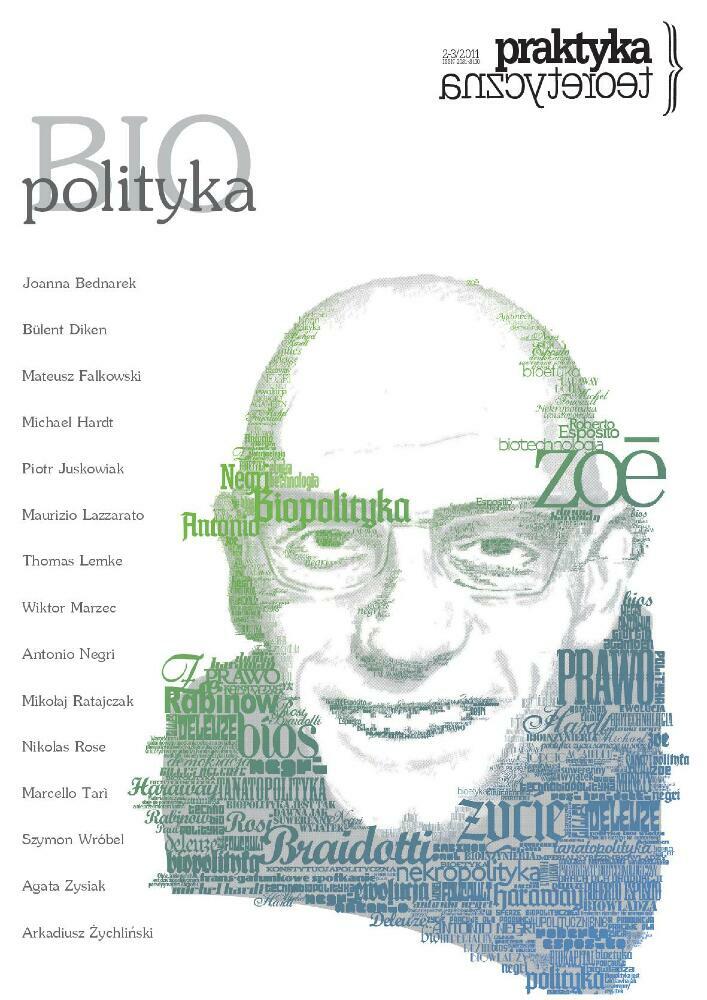Abstract
Qe primary aim of this paper is to analyse
the limits of biopolitics (both in the strict, spatial-
material sense and from the historical point of view).
Qe discussion will focus only on the conditions of
giving an answear to the title question and on the
concept of biopolitics.
Qe way Foucault writes history is itself enough to
understand the genesis and status of biopolitics.
Foucault’s method – here reconstructed on the basis of
his lectures from the seventies – consists of a progressive
exposure of posisitive forces hidden behind every
phenomenon. Every object, every historical event is
constituted in a constellation of forces that function as
its genetic elements. Qese powers themselves are born
earlier, usually separately, in abstraction. If they are to
take shape, to be realised, they must become related.
At the same time, their prior abstractness becomes
visible only from the perspective of their *nal form.
A similar view on history one can *nd in Marx’s
writings: the historiography always consists of searching
for genetic elements, powers that constitute a given
phenomenon.
Foucault writes the history of realisation diUerently.
Qe realisation for him is a principle of transformation.
Qe becoming of a concrete is also the becoming of
biopolitics.
References
Agamben G. 2008. Homo sacer: suwerenna władza i nagie życie. Warszawa: Prószyński i S-ka.
Balibar É. 2006. Foucault i Marks: stawka nominalizmu. W Trwoga mas: polityka i filozofia przed Marksem i po Marksie. Warszawa.
Baudrillard J. 2006. Społeczeństwo konsumpcyjne: jego mity i struktury. Warszawa: Sic!.
Bourdieu P. 2005. Dystynkcja: społeczna krytyka władzy sądzenia. Warszawa: Scholar.
Deleuze G., Guattari F. 1997. Anti-Odipus. Frankfurt a/M.
Foucault M. 1998. Trzeba bronić społeczeństwa: wykłady w College de France. 1976. Warszawa: Fundacja Aletheia.
Foucault M. 2004. Naissance de la biopolitique: cours au college de France (1978-1979). Paris: Seuil.
Foucault M. 2010. Bezpieczeństwo. terytorium. populacja: wykłady w College de France 1977-1978. Warszawa: Wydawnictwo Naukowe PWN.
Marks K., Engels F. 1966. Dzieła. t. 13. Warszawa: Książka i Wiedza.
Schmitt C. 2000. Teologia polityczna. [w:] tegoż. Teo-logia polityczna i inne pisma. Kraków.
License
“Theoretical Practice” seeks to put into practice the idea of open access to knowledge and broadening the domain of the commons. It serves the development of science, thinking and critical reflection. The journal is published in open-access mode under the CC-BY-NC-SA 4.0 license (detail available here: http://creativecommons.org/licenses/by-nc-sa/4.0/). Articles published in the journal may be freely distributed, stored, printed and utilized for academic and teaching purposes without restrictions.
They should not be, however, used for any commercial purposes or be reconstructed into derivative creations. Access to the journal may not be limited or offered for a fee by any third party.
Prospective authors are obliged to fill in, sign and send back the publishing contract compliant with the CC licencing. [PL.pdf, PL.doc, EN.pdf,EN.doc].
According to this contract, authors grant the journal a non-exclusive right to publish their work under the creative commons license (CC-BY-NC-SA 4.0) without any financial obligation on both sides of the contract.
Before submission authors should make sure that derivative materials they use are not protected by copyright preventing their non-commercial publication. Authors are responsible for any respective copyright violations.
